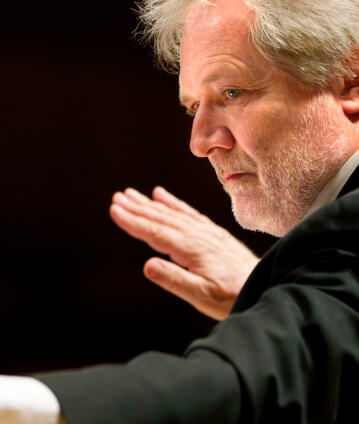Peter Eötvös conducts the premiere of his Cello Concerto Grosso

For Peter Eötvös, composing is “the enchantment of the listener through sound”. Here, the composer presented one result of this concept with the premiere of his Cello Concerto Grosso. In addition, there is tempestuous music and psychological drama in the second half of the concert, when Eötvös conducts the Coronation and Death Scenes from Mussorgsky’s Boris Godunov. The soloists are the cellist Miklós Perényi and the bass-baritone Ferruccio Furlanetto.
Peter Eötvös “is interested in the technique with which [he] can turn the unbelievable into sound.” In developing this concept, he was accompanied by many outstanding composers. At the age of 14, he was admitted to Zoltán Kodály’s composition class at the Academy of Music in Budapest; Eötvös later worked closely with Karlheinz Stockhausen and Pierre Boulez.
The Cello Concerto Grosso is a play on old forms. From the Baroque concerto grosso, Eötvös adopts the combination of orchestra and a group of soloists, in this case of eight cellists. In a way that is reminiscent of the classic solo concerto, one single cellist is placed in front of the group of soloists, presenting the complete virtuoso potential of his instrument. This solo part is played by Miklós Perényi, a close associate of Peter Eötvös for many years who once said of him that Perényi is “like nature, like the trees and the flowers: he just exists and radiates”.
The premiere is framed by music of Modest Mussorgsky. The concert opens with Night on Bald Mountain, a wild representation of a witches’ sabbath, which the composer himself described as “hot and chaotic”. The end of the evening is equally energetic with two scenes from Mussorgsky’s Boris Godunov, with a choir portraying the stirred up Russian people. With tempestuous music, it appears as an uncontrollable force, forming the greatest imaginable contrast to the psychological drama of the Tsar Boris, here performed by Ferruccio Furlanetto.
© 2011 Berlin Phil Media GmbH
Related interviews